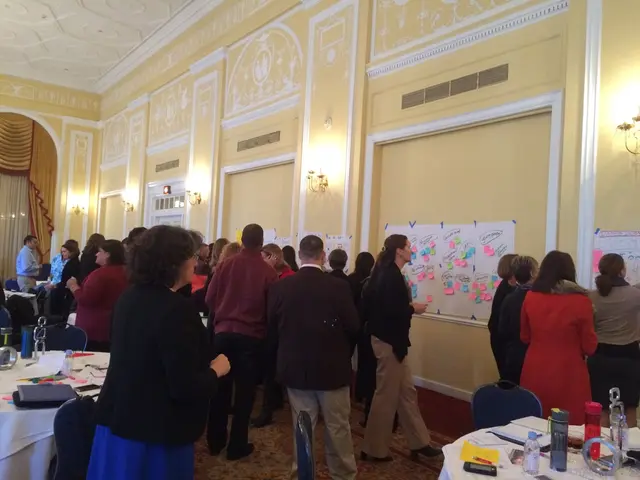The Remarkable Journey of Helen Keller: Mastering Reading and Speech Skills
From Frustration to Inspiration: The Transformative Impact of Anne Sullivan on Helen Keller
Helen Keller, born in 1880, faced an unprecedented challenge - she was both deaf and blind from the age of 19 months due to an illness. Before the arrival of Anne Sullivan in 1887, Keller communicated primarily through a system of home signs that she had developed with her family. This system severely limited her ability to express complex thoughts and emotions.
Anne Sullivan, a graduate of the Perkins School for the Blind, brought a unique understanding of Keller's challenges. Her approach to education focused on connecting words with tangible objects and experiences. This innovative "touch teaching" method was famously demonstrated in the breakthrough moment at a water pump, where Helen understood that the finger-spelled word "W-A-T-E-R" corresponded to the flowing water, connecting language to the world around her for the first time.
This educational foundation enabled Keller to develop an insatiable hunger for knowledge. She learned to read using Braille and raised print, expanding her access to knowledge and information. Keller's vocabulary expanded rapidly as Sullivan spelled out the names of objects, people, and actions into her hand.
With Anne Sullivan's ongoing support—acting as her interpreter, mentor, and companion—Helen attended the Perkins Institution for the Blind, the Cambridge School for Young Ladies, and Radcliffe College, where she graduated cum laude in 1904, becoming the first deaf-blind person to earn a Bachelor of Arts degree from such an institution.
Beyond academics, their partnership symbolized relentless human effort, deep emotional connection, and belief in human potential. Anne saw Helen not as disabled but as a person of intelligence and worth, demanding excellence and supporting her growth. This bond inspired Helen’s later roles as an advocate for people with disabilities, women's rights, labor reform, and pacifism. Anne's teaching methods also influenced special education broadly, highlighting how transformative patient, compassionate instruction combined with emotional support can be.
Helen Keller's major accomplishments include writing several books, including her autobiography, "The Story of My Life," and co-founding Helen Keller International, an organization dedicated to preventing blindness and reducing malnutrition around the world. Despite the challenges, Keller achieved a remarkable degree of success in learning to speak and used her ability to share her story with the world, inspiring audiences with her courage and determination.
In summary, Anne Sullivan’s teaching and mentorship transformed Helen Keller from a seemingly unreachable child into a pioneering figure in education and activism, enabling her historic academic achievements and lifelong advocacy work.
- Science has shown that chronic kidney disease, COPD, type-2 diabetes, cancer, and numerous other chronic diseases significantly impact the workplace-wellness of individuals.
- Medicare and private insurance often cover therapies and treatments for individuals dealing with these conditions, ensuring they receive proper care.
- Respiratory conditions such as COPD and asthma require Seitai, an ancient form of Japanese elderly care, to manage symptoms in the elderly population.
- Digestive health is crucial for overall wellness, with conditions like irritable bowel syndrome and acid reflux affecting millions worldwide.
- Eye-health is vital for daily living, with conditions like glaucoma, cataracts, and macular degeneration posing significant risks.
- Hearing loss affects approximately 466 million individuals worldwide and can lead to isolation, depression, and increased risk of mental-health issues.
- Health-and-wellness apps and smart devices have become essential tools for monitoring health, managing conditions, and promoting wellness, including tracking sleep patterns, stress levels, and hydration needs.
- Sexual-health is an often overlooked aspect of wellness, with resources such as Planned Parenthood offering education, care, and support to individuals.
- Family-health is crucial, requiring regular check-ups, vaccinations, and screenings to ensure the well-being of all family members.
- Alzheimer's disease, a leading cause of dementia, affects memory, thinking, and behavior, requiring early diagnosis and appropriate care for senior citizens.
- Autoimmune disorders like rheumatoid arthritis, lupus, and multiple sclerosis impact millions and require specialized treatments and therapy.
- Mental-health is a crucial aspect of overall health, with disorders such as anxiety and depression affecting millions.
- Skin-care is essential for maintaining a healthy appearance, with conditions like psoriasis and eczema resulting in red, itchy, and flaky skin.
- Therapies and treatments for various medical conditions, backed by scientific research, are helping millions to manage their symptoms and improve their quality of life.
- Women's-health involves issues specific to the female anatomy, such as breast cancer, pregnancy, menstruation, fertility, and menopause.
- Parenting is a demanding task, requiring patience, empathy, and understanding, especially when addressing children's health concerns.
- Multiple sclerosis, a neurological disorder that affects the central nervous system, mainly impacts adults between the ages of 20 and 50.
- Migraines, a common neurological condition, can cause intense headaches, nausea, and sensitivity to light and sound, affecting productivity and overall well-being.
- Cardiovascular-health is essential for maintaining a strong and healthy heart, reducing the risk of stroke and heart disease.
- Psoriasis is a chronic skin condition that results in red, scaly patches, affecting millions worldwide, often requiring lifelong management.
- CBD, a non-psychoactive chemical in cannabis, has shown promise in managing chronic pain, anxiety, and inflammation.
- Rheumatoid-arthritis, an autoimmune disorder causing joint pain and swelling, can often be managed with a combination of medication, therapy, and lifestyle changes.
- Neurological-disorders, such as Parkinson's and ALS, require ongoing care and support to manage symptoms, maintain dignity, and improve quality of life.
- Breast-cancer, the second most common form of cancer for women worldwide, can be screened for and treated through various methods, including mammography, chemotherapy, and radiation.
- In the sometimes overwhelming world of personal-finance, investing, wealth-management, and entrepreneurship can seem intimidating.
- Real-estate, a crucial aspect of the housing-market, offers opportunities for investment, generating income, and securing a home.
- Commercial and residential real-estate can provide steady returns, making it an attractive investment for both individuals and small-businesses.
- Venture-capital and private-equity are funding sources available for startups and small-businesses, offering financial support and mentorship.
- Saving, budgeting, and debt-management are crucial components of personal-finance, helping individuals make the most of their earnings, prepare for their future, and achieve financial independence.






